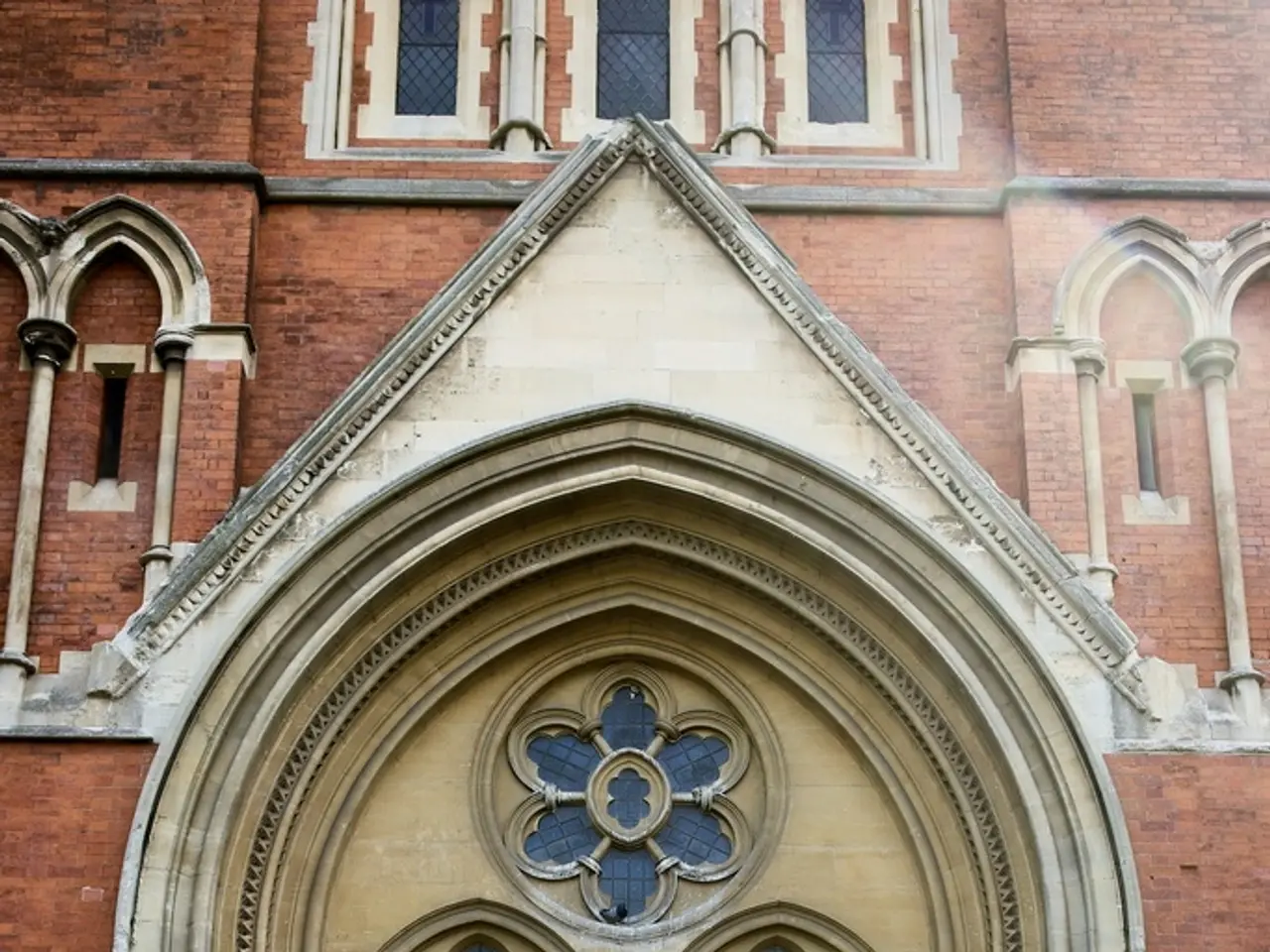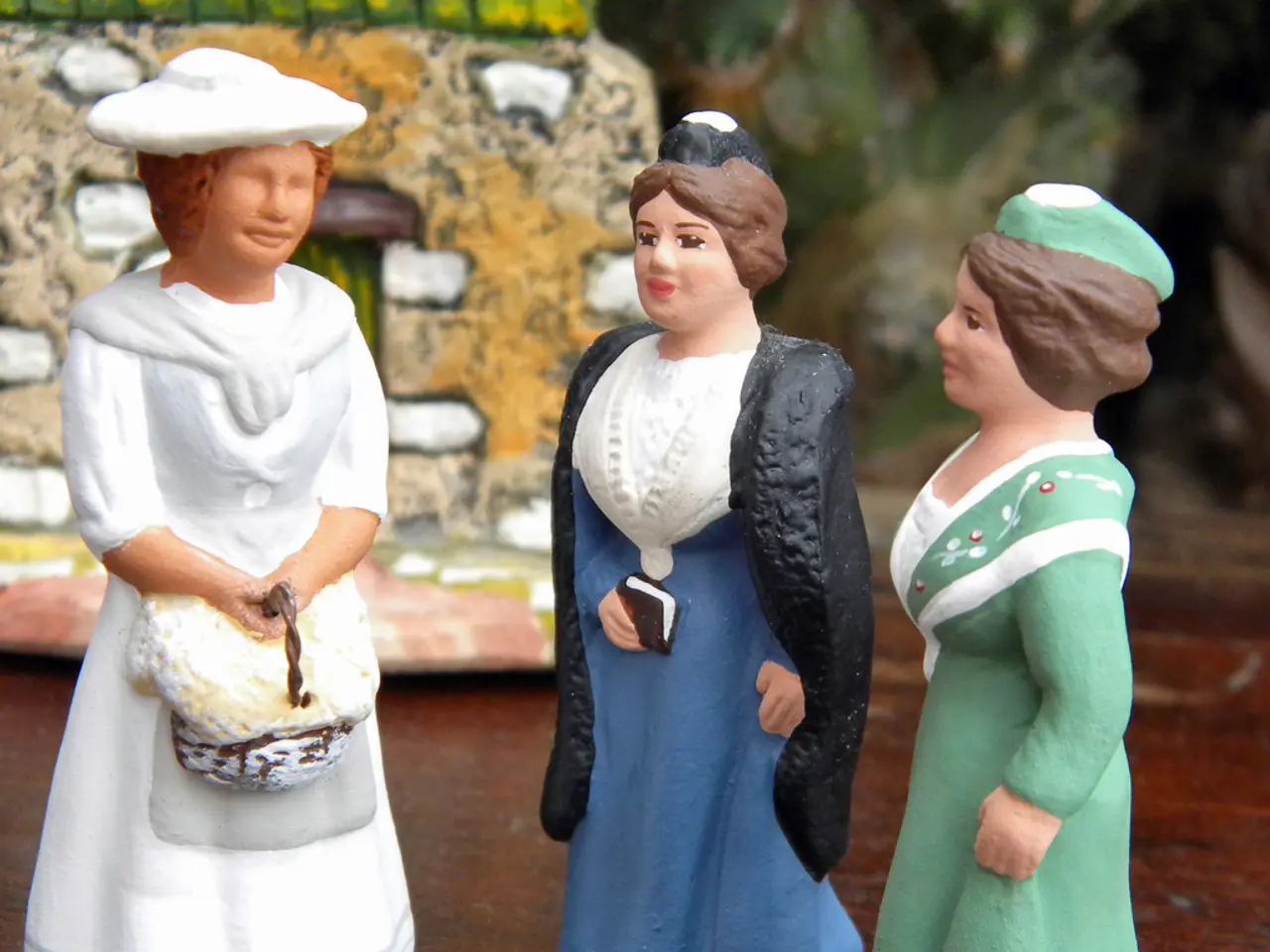Auschwitz faces potential declaration: Rabbi issues warning
Article Title: Jewish Interpretations of the Holocaust: A Journey Through Theology, History, and Memory
In the aftermath of the brutal attack by Hamas on Israeli civilians, many questions arise, one of them being: What did we do wrong in our way of practicing our religion, serving God? This question is not new, especially within the Jewish community, as they grapple with understanding the cause of the Holocaust, a tragedy that has left an indelible mark on their collective memory.
Rabbi Yechiel Leo Brukner, of the Synagogue Community of Cologne, views Auschwitz as a turning point and a new category of annihilation and destruction in Jewish theology. However, Jewish theology does not claim to have an explanation for Auschwitz. Rabbi Brukner was raised with the belief that there is no answer to the event of the Holocaust.
Within Judaism, interpretations of the cause of the Holocaust vary, reflecting theological, historical, and philosophical perspectives that have evolved since World War II.
Theological Interpretations
Some Jewish thinkers grapple with the Holocaust through the lens of divine justice, human free will, and theodicy — questioning how a just God could allow such suffering. For some, the Holocaust challenges traditional beliefs, leading to re-examinations of God's role or silence during tragedy. Others see the Holocaust as a result of human evil and moral failure, emphasizing that it was caused by Nazi ideology and hatred rather than divine will. This viewpoint reinforces human responsibility over divine causation.
Historical and Sociopolitical Context
The Holocaust is understood as the outcome of racist Nazi ideology, rooted in centuries of religious antisemitism that evolved into racial antisemitism under the Nazis, who characterized Jews as a biologically inferior race targeted for complete removal. This racial antisemitism built upon older Christian antisemitic ideas — including the false accusation of Jewish collective responsibility for the death of Jesus — contributing to deep-seated hostile attitudes culminating in genocide. Nazi propaganda and policies, such as purging "Jewish intellectualism" and promoting racial purity through cultural and academic controls, systematized antisemitism, leading to mass murder.
Resistance and Response Within Judaism
Jewish resistance during the Holocaust, such as Jewish partisans fighting the Nazis, reflects resilience and the refusal to be passive victims, shaping modern Jewish narratives of survival and defiance.
Relevance Today
These interpretations continue to inform Jewish religious thought and community identity, shaping responses to contemporary antisemitism and the commitment to Holocaust remembrance. They emphasize the dangers of racial hatred and intolerance and underscore the imperative of educating about the Holocaust to prevent future genocides. The theological debates also resonate in interfaith dialogues, particularly in addressing historical Christian antisemitism and fostering reconciliation.
Rabbi Brukner's father, a survivor of the Holocaust, was angry at the rabbi who told his family to stay during the Nazi occupation. Anti-Semitism concerns Rabbi Yechiel Leo Brukner, and he does not want to judge the rabbi from his perspective, but understands his father's anger. The destruction of the first and second temples can be explained by the fact that something is missing in the Jewish people that still needs to be processed.
The Shoah led to the passing of a UN resolution in 1947, allowing the State of Israel to be born. Rabbi Brukner finds the ultra-Orthodox Jewish view that Zionism is the cause of the Shoah absurd and regrets its existence within Judaism. Reasons for suffering, according to Rabbi Brukner, can lie in the past or the future and require a broad perspective to understand.
In sum, Jewish interpretations of the Holocaust’s cause range from theological reflections on divine justice to emphases on human evil and historical circumstances, all of which remain deeply significant for understanding and confronting antisemitism and preserving memory in the present day.
- Jewish interpretations of the Holocaust's causes extend into the realm of politics, as some consider the Holocaust a direct result of Nazi ideology and its roots in centuries-old religious antisemitism, while others examine it through the lens of theodicy, questioning God's role during the tragedy.
- Rabbi Brukner, in his views on the Holocaust, delves into war-and-conflicts and general-news as he discusses the passage of the UN resolution following the Shoah, leading to the birth of the State of Israel, and his rejection of the ultra-Orthodox Jewish view that Zionism is the cause of the Shoah.






